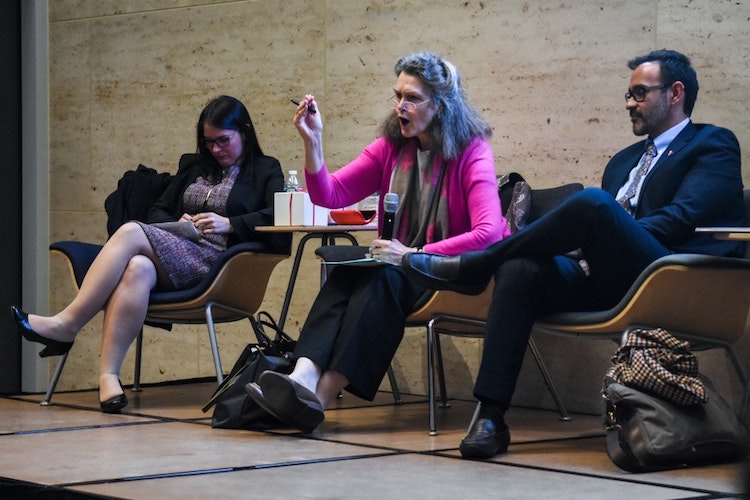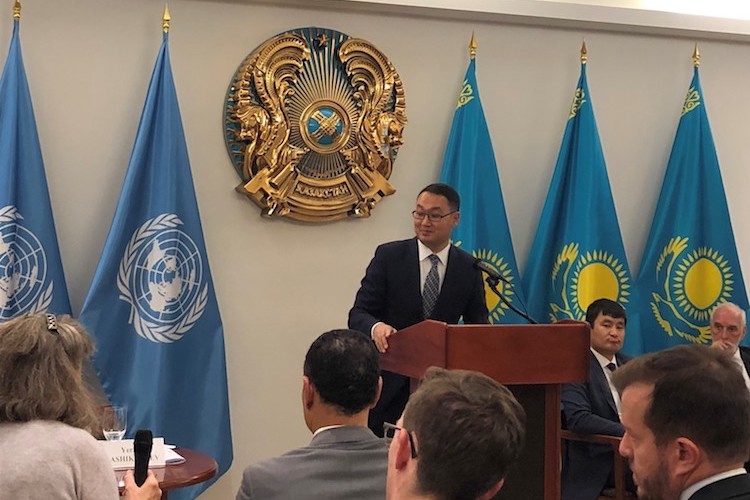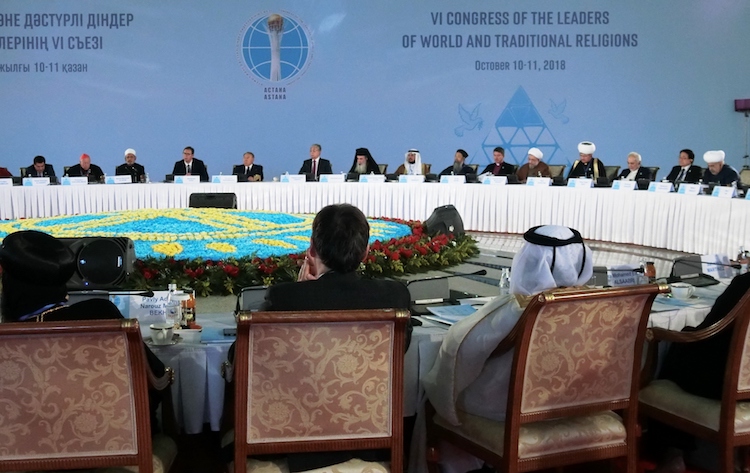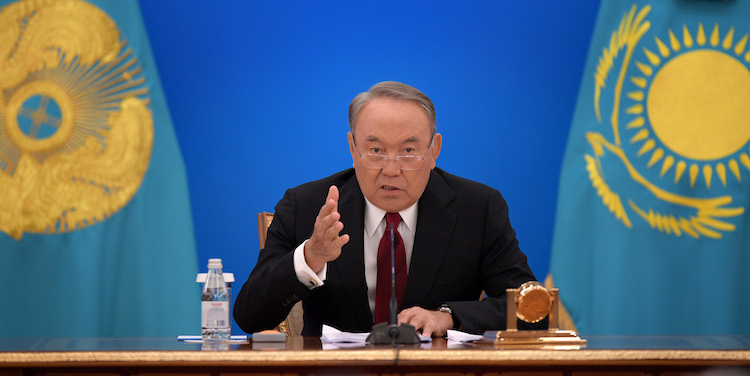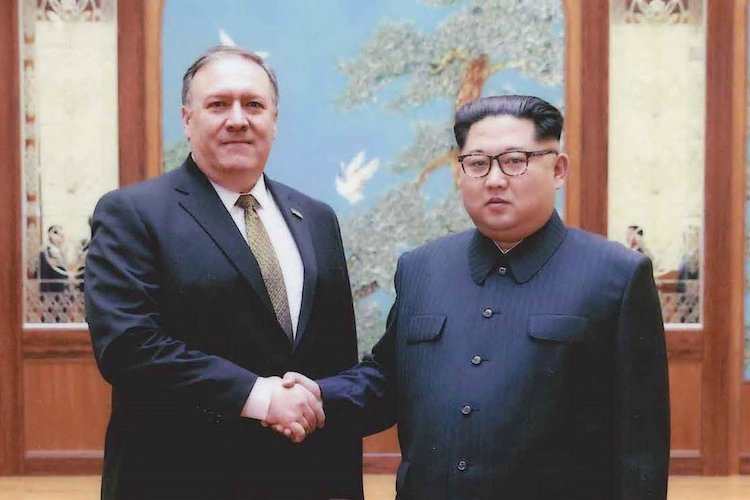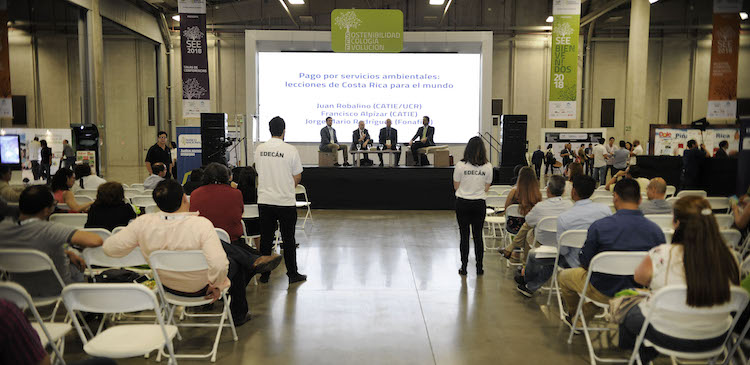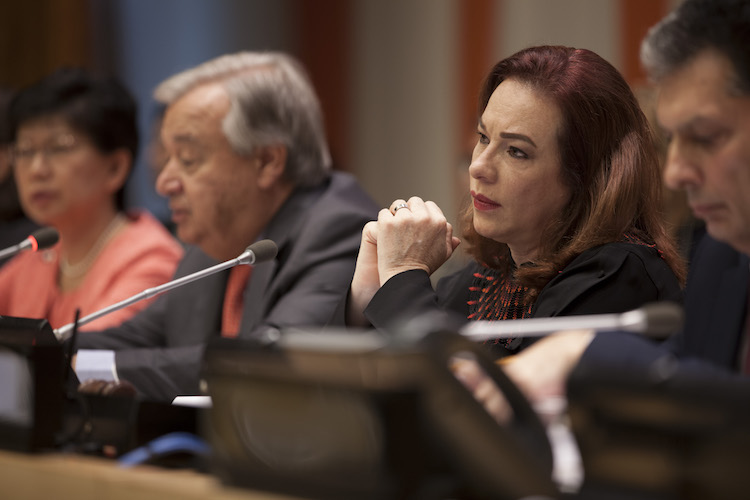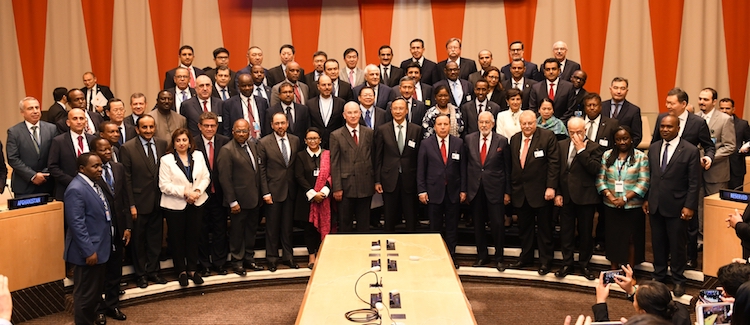By Claire Ochroch This report first appeared on October 25, 2018 in The Daily Pennsylvanian. NEW YORK (IDN-INPS) – Speakers from across the world stopped by Penn’s Perry World House on October 23 evening to discuss the importance of denuclearization. The event, called the Penn Peace Project, was hosted by the International Affairs Association. Speakers […]
Participation in Landmark NATO Exercise Reveals Iceland’s Dilemma
By Lowana Veal REYKJAVIK (IDN) – Iceland, the most sparsely populated country in Europe, has no standing army. But it is a founding member of the 29-nation North Atlantic Treaty Organization (NATO), and is therefore taking part in Trident Juncture 2018, the largest NATO exercise since the end of the Cold War in December 1991. […]
Kazakh Initiated Forum Underlines Importance of NWFZs
By Santo D. Banerjee NEW YORK (IDN) – High Representative for Disarmament Affairs Izumi Nakamitsu has expressed her “gratitude” to the Kazakhstan for their continued partnership with the UN Office for Disarmament Affairs (UNODA), including through a series of Nuclear Discussion Forums (NDF), now in its eighth year. She was addressing a side event of […]
Time Out for Nukes!
Viewpoint by Alice Slater The author is a member of the World Beyond War Coordinating Committee and the UN NGO Representative of the Nuclear Age Peace Foundation. NEW YORK (IDN) – With 122 nations having voted last summer (July 2017) to adopt a treaty for the complete prohibition of nuclear weapons, just as the world […]
World Religious Leaders’ Astana Congress Pledges ‘Unity in Diversity’
By Ramesh Jaura ASTANA (IDN) – At a critical point in time when religious tolerance is being consigned to oblivion, an international conference has appealed “to all people of faith and goodwill” to unite, and called for “ensuring peace and harmony on our planet”. The appeal emerged from the two-day Congress of the Leaders of […]
Kazakhstan Still Has a Lot of Heights to Climb
By Nursultan Nazarbayev, President of the Republic of Kazakhstan Following are extensive excerpts from Kazakh President’s State of the Nation address on October 5, 2018 in the Akorda presidential residence. ASTANA (IDN | KAZINFORM) – Over the years of our independence we have achieved a great deal. Having created a modern progressive state with a […]
Pompeo Heads to Pyongyang in Quest of Denuclearization
By Kelsey Davenport & Alicia Sanders-Zakre Kelsey Davenport is director for nonproliferation policy and Alicia Sanders-Zakre is research assistant at the Arms Control Association. This article first appeared in the Inaugural Issue: The North Korea Denuclearization Digest on October 3, 2018. It is being reproduced courtesy Arms Control Association. – The Editor WASHIGTON, D.C. (IDN-INPS) […]
Costa Rica Set to Achieve Carbon Neutrality by 2021
By Fabiola Ortiz SAN JOSE, Costa Rica (IDN) – It has been twenty two years since Costa Rica embarked on its national program of payment for environmental services (PES), the first in the world to start a nationwide scheme for compensating landowners for keeping the forests standing for people and the planet. Now that the […]
UN High-Level Meeting Reflects Broad Support for Total Nuclear Disarmament
By Santo D. Banerjee NEW YORK (IDN) – The United Nations has pursued the goal of nuclear disarmament since the adoption of the very first General Assembly resolution in 1946. But aware that countries possessing nuclear weapons have well-funded, long-term plans to modernize their nuclear arsenals, in 2013 the UN declared September 26 as the […]
Kazakh Initiated Global Coalition Aims at Terrorism-Free World
By J Nastranis NEW YORK (IDN) – In the first voluntary political declaration of its kind adopted at the global level, UN Member States have reiterated in the Code of Conduct for the Achievement of a World Free of Terrorism their commitments to strengthen international cooperation to reach the common goal of eradicating a crucial […]

